Bachelor of Journalism and Professional Writing, Bachelor of Arts (Creative Writing and Literature)
Degree Level Undergraduate
Year 2025
You're considered an International student if you are:
Degree Level Undergraduate
Year 2025
Program Code
MBJC
Prerequisites
None
Assumed Knowledge
None
Fees
AUD$ 32,800 per annum (per 1.0 EFTSL) for students enrolled in 2025
Admissions
Student Profile
International Admission by Country
See full entry requirements
CRICOS Code
097510J
The admission criteria have been grouped to assist you to easily find the information most relevant to your circumstances. However, you may fit into more than one and the university will consider applicants against each of the relevant criteria.
Certain conditions apply. For more information refer to Appendix 4 of the University's Selection and Entry policy.
Applicants are required to meet one of the following criteria with a competitive result, and demonstrate that they fulfil any prerequisite requirements and essential requirements for admission:
Recent secondary education
Meet any prerequisite requirements with a minimum grade of C- or equivalent
AND
Applicants who have not achieved the Selection Rank required for automatic selection may be selected for any remaining places based on the grades of their year 12 subjects.
OR
Higher education study
OR
Vocational Education and Training (VET)
OR
Work and life experience
| Bangladesh HSC | 3.5 |
| Canada High School (OSSD) | 60 |
| Eynesbury FSP | 310 |
| German Abitur | 3.8 |
| Kenya KCSE (average) | B |
| Malaysia STPM (best 3) | 6 |
| Malaysia UEC | 32 |
| Norway GPA | 2.8 |
| Pakistan HSSC | 75 |
| Sri Lanka A Levels (best 3) | 6 |
| Sweden GPA | 12.5 |
| UK Board GCE A Levels/HK Board | 6 |
| Vietnam | 7 |
| Australia | 65 |
| IB (best 6) | 26 |
| USA SAT (1600) | 1050 |
| India (best 4) State Board | 70 |
| India (best 4) Central Board | 60 |
| HKDSE | 15 |
| Nepal NEB | 2.41 |
UniSA is an unstoppable university for unstoppable people. As one of the World’s Top Young Universities2, we’ll ensure you get the experience your future profession's demands so it’ll feel like you’re studying one minute and in a career the next.
12018 Excellence in Research for Australia (ERA).
2UNSTOPPABLE® is a Kellogg Company trade mark used under licence. Ranked #43, 2024 THE Young University Rankings.

This double degree ensures you graduate with the advanced writing and production skills needed for a career in the journalism industry, as well as the theoretical knowledge and practical skills needed for a career in creative, professional and technical writing.
You will explore historical and contemporary fiction, non-fiction, poetry, autobiographies, essays and plays, as well as news and feature writing, audio and video, print and digital journalism.
Our on-campus facilities, which include TV and radio studios, will offer you the opportunity to practise recording audio and video news bulletins and podcasts, producing, and filming with industry-standard technology. You will also have the opportunity to write, edit, record and publish stories for our online publishing platforms: On the Record and UniCast, a web-based radio station.
You will get the chance to practise and develop these skills in a real-world environment through our studios, and publishing and streaming platforms, and when you complete an internship or industry project during your final year. This great opportunity enables you to hone your skills and build important industry networks.
If you finish your degree with a credit or higher grade point average (GPA) you could also be eligible for the one-year Bachelor of Creative Arts (Honours).

This degree will provide you with the skills and knowledge needed to work as a journalist and writer in mainstream, niche and community media, publishing and communication fields. The emphasis on professional writing opens doors to a wide variety of allied professions such as technical writing, and marketing and communications.
You will study historical and contemporary fiction, non-fiction, poetry, autobiographies, essays and plays. As you begin to create your own great classics, you will also learn how different oral and written texts have impacted upon cultures around the world. A final year industry internship will further extend your knowledge and training. Under the guidance of skilled academics and researchers, you will:

The broad nature of this double degree means you will develop skills across a range of genres and will graduate with writing, editing and production skills that will be useful across a range of writing roles.
This is South Australia’s only journalism degree and our graduates are some of the most recognisable personalities in the media landscape, with many going on to secure positions with the ABC, SBS/NITV, The Advertiser, InDaily, Crikey, and The Australian, as well as on commercial radio and TV networks and at a range of digital and niche news sites and magazines.
We also offer industry-standard campus facilities, including a TV/video studio that boasts one of South Australia’s largest green screens, radio and podcast studios, and editing suites. This means you will graduate with plenty of practical experience. You can also be part of the University’s own radio station, UniCast, which is broadcast live on the internet; our TV show, which airs on Channel 44; or get your work published in Verse, our online student publication, On the Record, or the national student publication The Junction.
This degree prepares you to work as a journalist in any medium, across any platform, and in media organisation newsrooms, local community news sites, niche and community media, and as a freelance/entrepreneurial journalist. You will also be qualified to embark on a career within the creative industries, advertising, and publishing fields as an author, editor or researcher. Careers to consider:
The Media, Entertainment and Arts Alliance (MEAA) is the only national journalists' professional association in Australia. While journalists are not required to be formally accredited to practise, many Australian journalists are members of the MEAA. The Alliance promotes links between the industry and Journalism students at a state and national level.
How to apply for international students will give you helpful information about the application process at the University of South Australia. When you are ready, apply through our International Application System. If you would like to talk to someone near you about studying at the University of South Australia, we have agents all over the world who can assist you. Find an Education Agent in your country.
Australian
There are other pathways you can follow to study this degree, including:
Every year, over 2,500 UniSA students are supported in their studies through scholarships and grants worth millions of dollars. Check out the scholarships below. One of them may be perfect for you. Visit our scholarships page for more.
Recipients can get a 50% reduction on tuition fees for up to four years of full-time study for selected degrees.
Recipients can get a 15% reduction on tuition fees for the duration of their chosen degree.
As a UniSA student, you will have unique access to work placement opportunities, overseas study tours and exchanges, networking events, internships, guest speakers and more.
Our campuses are equipped with state-of-the-art facilities including modern lecture theatres, libraries, workshops and laboratories, as well as spaces that simulate real work environments. These are all supported by the latest technologies and a 24/7 online learning platform. We have health services on campus, gymnasiums, technology zones and great student lounges. You will also gain access to a range of community clinics, which provide professional and cost effective services in areas of health, business, law and psychology. There are campus sport activities to keep you active, and if you are keen to explore the social side of university life, there are movies, cooking demonstrations, parties and lots more.
Adelaide also has a variety of accommodation options to suit different requirements and budgets. Options include dedicated student accommodation and private rentals. See our long-term accommodation pages, or explore our student accommodation by Scape on Bank Street in Adelaide’s lively cultural precinct, an ideal location for students. It is within easy reach of UniSA’s city and metropolitan campuses, Rundle Mall shopping, the Central Market, Chinatown, and the West End’s vibrant nightlife. It is also across the road from the Adelaide train station, and on bus and tram routes.
You will have access to:

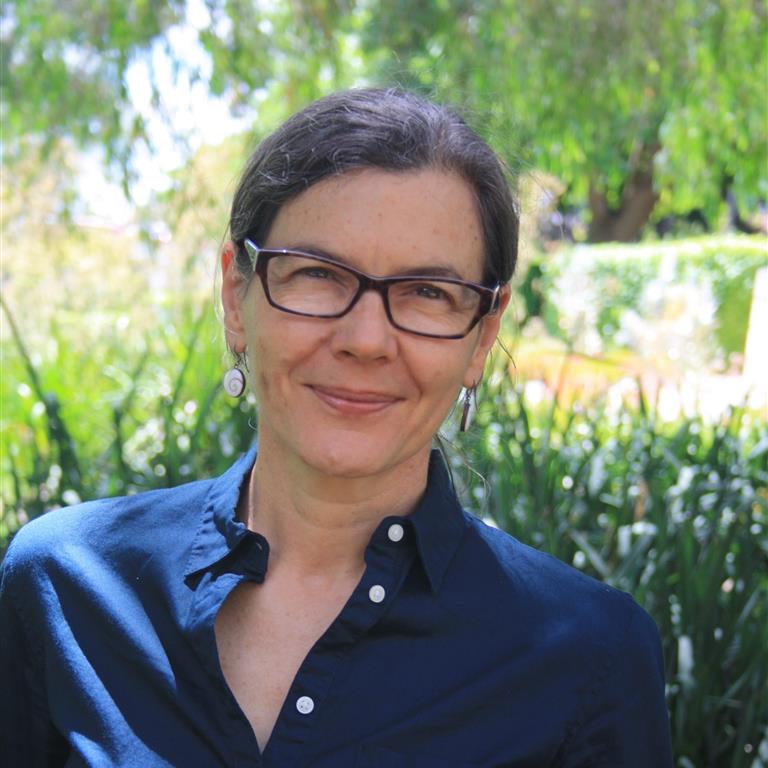
There are a number of ways to apply to study UniSA's undergraduate and postgraduate coursework degrees.
You can access our online International Application System through our How to Apply page. The International Application System is an easy and secure online application and acceptance process. You will have visibility of your application through the secure online portal with the ability to download offer documents, submit your acceptance and make a payment.
Alternatively you can submit an application through one of the University's registered Education Agents.
If you are completing an Australian year 12 qualification in Australia or overseas, or the International Baccalaureate (IB) Diploma Programme in Australia, you must apply through SATAC http://www.satac.edu.au/.
If you are applying for the UniSA Study Abroad or Study Abroad Plus program, you can submit your application online here.
Postgraduate study by research
For information on applying to do postgraduate study by research, including Masters by Research, PhDs or Doctorates, please visit http://unisa.edu.au/resdegrees.
There is no closing date for submitting your application however the admissions process takes between one and three weeks from the date that we receive your application and all required supporting documentation.
If you are completing an Australian year 12 qualification in Australia or overseas, or the International Baccalaureate (IB) Diploma Programme in Australia, you must apply through SATAC. Key dates for applications can be found here.
You may be eligible to receive credit or advanced standing for your chosen UniSA degree based on your previous studies, if they are in a related area at an equivalent or higher level. Receiving credit will reduce the number of courses you undertake within the degree, and may also reduce the overall duration of your degree.
The amount of credit you may be eligible to receive is assessed on a case-by-case basis by the Admissions team.
The best way to determine your eligibility to receive credit or advanced standing is to apply using our International Application System which can be found on our How to Apply page. You will need to supply detailed syllabus documents with your application.
UniSA welcomes the opportunity to speak with you regarding your study options. Our staff are able to talk to you about degree information, career outcomes and pathways, entry requirements, applications, and student life, so that you are able to make the best study decision for your future.
Click here to book a 1:1 appointment with one of our enquiries team.
We also have many events throughout the year in Australia and overseas where you can speak with UniSA representatives about your area of interest. View our calendar of events in your home country by selecting the 'International' filter.
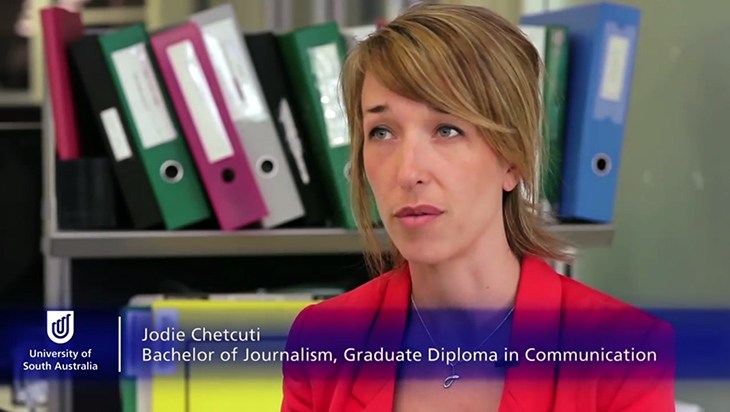
Hear from journalism graduate Jodie.
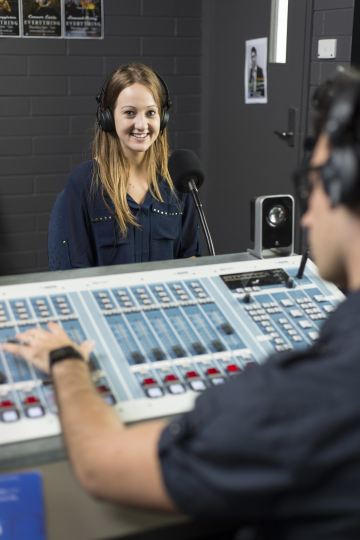
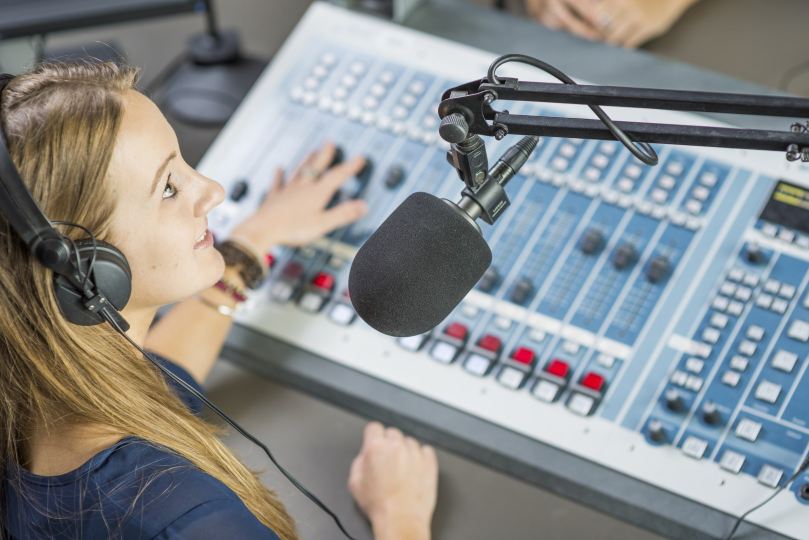
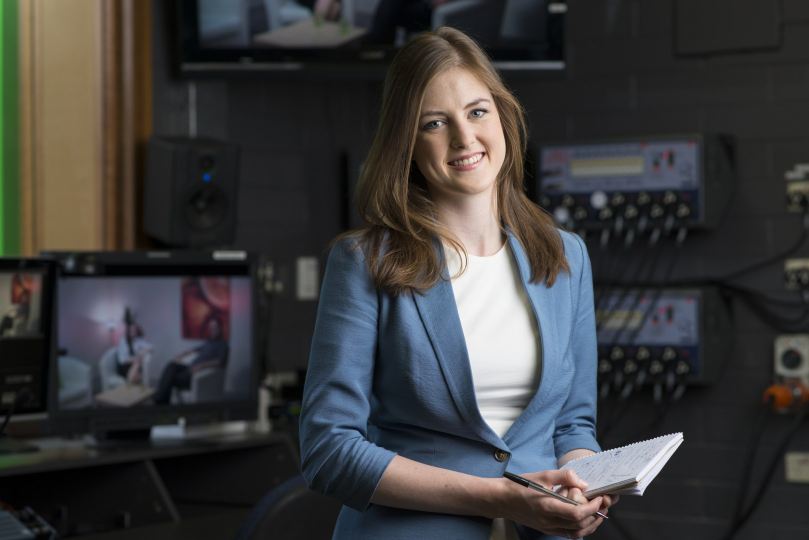
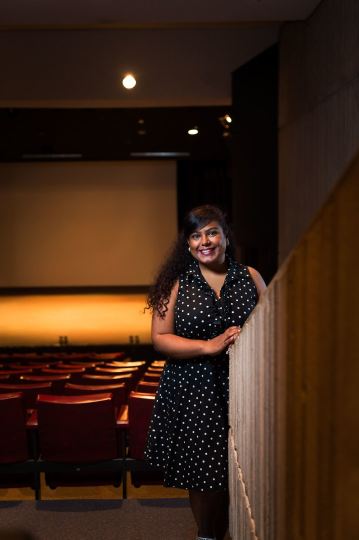

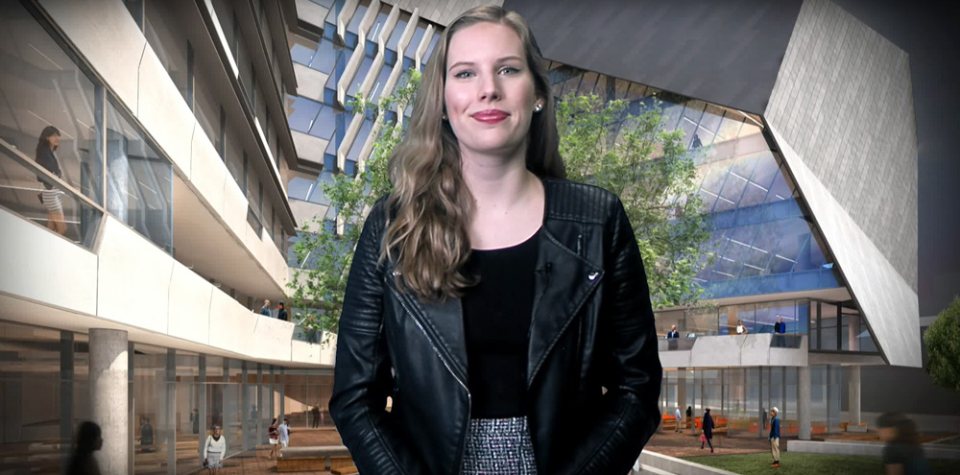
UniSA Journalism and Professional Writing student - Olivia
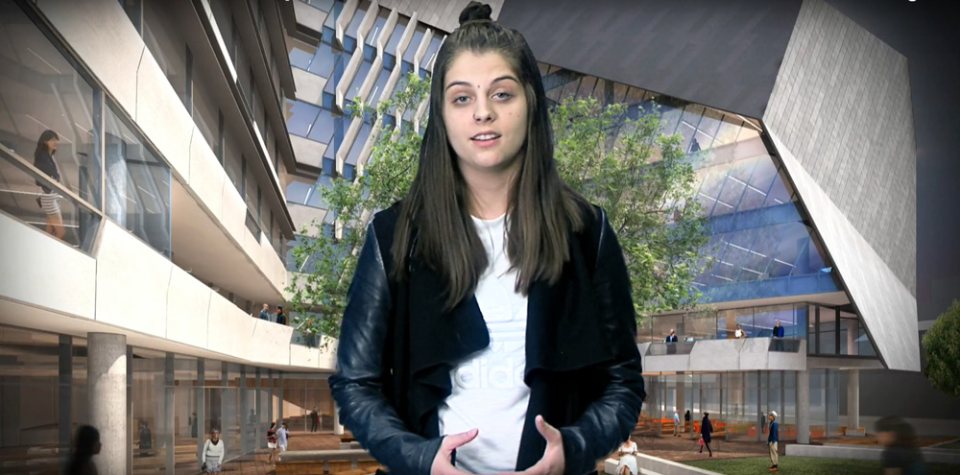
UniSA Journalism and Professional Writing student - Isabel